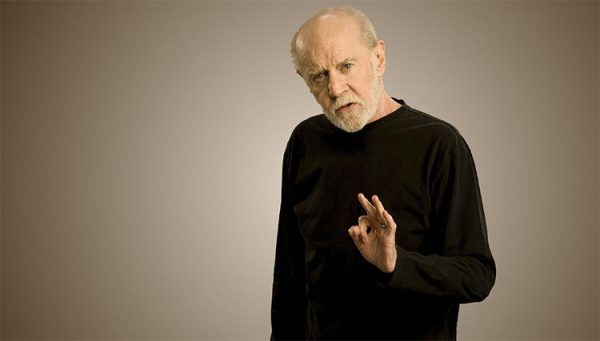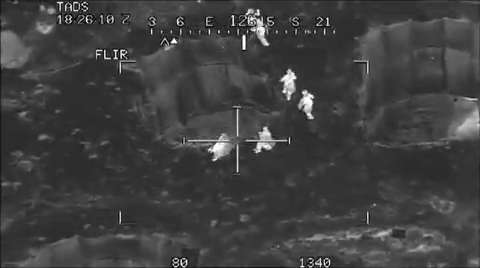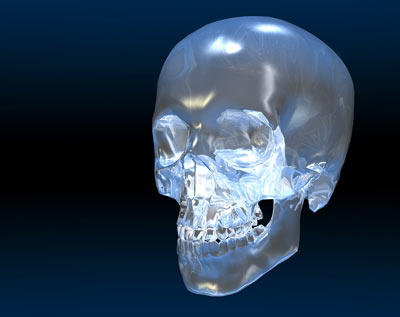
Dec 21, 2021
I’ve been going to job interviews since the late 1980’s, trying to land that one perfect job. Or at least, that one job that was full-time, long-term and which doled out paycheques large enough to have me living in a lifestyle to which I could become accustomed.
Alas, it’s now 20 years later and that job has proven elusive. Once again, I am making the rounds of interview panels, trying my best to look both enthusiastic and brilliant while the eyes of the interviewers slowly glaze over and the clock-watching begins.
Although many of the questions that interview panels asked in the 1980’s are still being asked today, I’ve noticed a somewhat disturbing trend in the direction of interviews over the past few years.
There are still the questions like, “Can you tell us, in your own words, why you feel qualified to work for our company?”, or “You have a pretty impressive resume. But could you explain the gaps in your resume, particularly the period of 1996 to 1998 and again in 2004?”
(Incidentally, the correct answer for that last question, for all of you human resource specialists out there, is, “None of your damn business.” More on why those time period gaps exist in a future blog).
Back then, the majority of the interview was given over to a discussion of job skills, work experience and education, particularly in my field where an extensive education and background in science is so important. I would happily talk with the interviewers about how good I was at field research methods, or data analysis, or writing technical reports. There were always scenarios to describe, such as, “Can you describe for us a scenario where you have encountered a serious problem in project protocols which would affect the quality of the research and how you solved that problem given the fact there were also other people who depended on your work to supply them with concise and accurate data?”
The interview I did the other day had all of those types of questions but curiously, they formed a fairly small portion of the interview time, which is what I have been finding in every other interview. Most of this interview (which was for a teaching position at a technical college) was geared towards inter-personal relationships.
“Have you ever had to work with a difficult co-worker who was affecting the quality of your work, and how did you deal with them?”
“Have you ever encountered a situation in which a co-worker contradicted you in front of other employees in an insulting way and how did you handle the situation?”
“What is the worst conflict you have personally been involved with in the office, how did it occur and what did you do to resolve the conflict?”
Do they want me to teach classes and conduct research or do they they want me to manage conflict and deal with belligerent people! Perhaps, at nthe very least, they want to be assured that I can handle any inter-personal problem which may arise.
Has our culture become so stressed from lack of money, lack of personal support groups, lack of gratitude from others, lack of freely-expressed love from our spouse and kids (and all of this amidst a growing pile of bills and financial problems) that the stress level at work needs to be actively managed?
Has the level of common courtesy sunk so low that each new applicant has to pass the minimum for both work skills and conflict resolution skills?
It could well be. After all, the reason I am interviewing for jobs right now is that I was fired from my last job. Six days before Christmas. On the day before the Christmas bonuses were handed out. And all because I told the senior manager (in order to save her some potential future embarrassment) that the reason why I did not include this one bird species in the environmental impact report is because the bird in question was a peacock and someone’s pet, and not a naturally-occurring species which could be classified as rare and therefore, a potential threat to the smooth functioning of the construction project we were working on.
As a result, there was unhappiness, there was inter-personal antagonism, and yes, there was conflict. And I did not manage that conflict very well. Partly because I thought it was such a damn silly a thing to worry about and I did not see the axe until it fell. But also because by that time I did not care.
If a co-worker can’t treat you with at least a minimum of courtesy and common good manners, then they aren’t worth working with. You are giving them a portion of your day and they should damn well respect that.
I was pissed off at being fired right before Christmas, and for something as dumb as a peacock. But in the 60 feet of walking from the front door of our offices to the elevators, I went from frowning at the perceived injustice to smiling at the sudden onset of freedom.
So now I’m back on the interview tour and answering all kinds of questions about how well I manage inter-personal conflict. I told the last interview panel the story about the peacock; they smiled and shook their heads at the silliness of it all. Seems like they might be good people to work with.
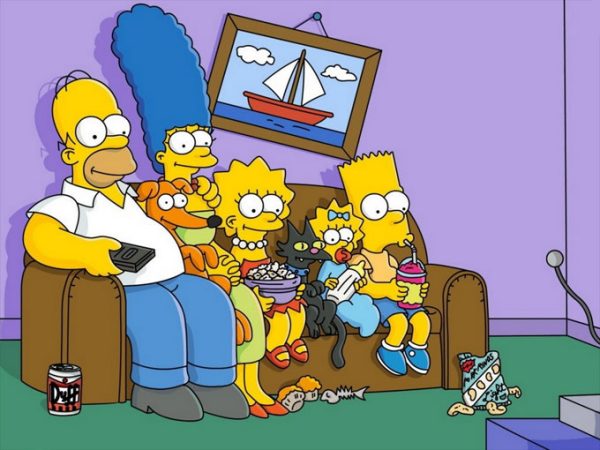
Oct 21, 2021
Another Christmas Day has come to an end. The guests have finally left and taken their noise and laughter with them. Numerous empty bottles are standing next to a large pyramid of dirty dishes. And the house is almost dark as everyone else has drifted happily off to bed. But I am still here, sprawled in an overstuffed chair by the tree, watching the long silver strands of tinsel shimmer lazily in the reflection of Christmas lights. I am here because I have one last rite to perform.
After the boisterous Christmas dinner, there comes this quiet time which I reserve for my private ritual. With a large tumbler of scotch as my only companion, I reflect back on the evenings’ festivities. I think of each of the guests in turn. How did they act, what did they say, what were they wearing? I consider how each person treated the others, trying to tease apart the intricate meanings of certain comments or gestures, striving to make sense of the convoluted relationships that exist within my extended family. Most of all I’m trying to find that one telling feature that will single out a few individuals for special consideration. You see, this is the time when I hand out the awards.
These awards, through which I pay homage to the hypocrisy of my family, originated in our kitchen. A few years back, as I was emerging from the innocence of my teenage years, my mother and I sat down to a summer mornings’ breakfast of coffee and conversation. For whatever reason she had decided the time was right to tell me about some lesser-known aspects of our family’s recent history. In less time than it took to drink the coffee pot dry the image I had always treasured of my extended family had been shattered. Where my eyes had seen only smiles and benevolence, my mothers’ eyes had witnessed pettiness, cruelty and spiteful manipulation.
Once my eyes were opened to these new horizons the root cause of so many strange and mysterious affairs became clear. The disaffection and animosity between family members resulted from the moral convention which maintained that when someone made a serious mistake in their lives, it was to be covered up and kept secret. And this was reinforced by the strongly-held belief that good Christian families were not supposed to have any skeletons in their closets. Opening the closet door now revealed a rather extensive bone yard.
The guiding light in this rigid moral system was my grandmother, the matriarch. She was an ancient crone who had endured great hardships over much of her life, first as a missionary-teacher among her so-called “savage jungle Indians”, then as a mother trying to raise a family during the Great Depression. Her strength of personality, honed during those difficult times, was evident as she steered the family along the path of the righteous and the pure. It was her bad luck to have such poor material to work with. Nevertheless, she was revered, or perhaps feared, by all.
After she passed away the shackles were loosened a little. Just enough to allow for each person to act more freely according to their nature but not enough to inflame the wrath of her ever-present spirit.
Now, please don’t get me wrong. Almost everyone in the family gets along during holidays and family get-togethers. However, as the grip of my grandmother’s hand fades with time the level of family harmony declines. There is always this ripple beneath the seemingly smooth surface, threatening to break through at the slightest provocation. This is where the awards come in.
I figured that if my relatives were going to spend the entire year spreading rumours or being malicious, it would be difficult for them to revert back to the angelic demeanour they displayed whenever my grandmother was present. But for an event as important as Christmas dinner they really do try, even if they are surrounded by real or imagined antagonists. And it is inevitable that mixing these two personas (plus liberal splashings of scotch and vodka) would produce some interesting scenarios. To those kin who are most capable of managing this feat and yet still able to dish it out against their foes, I confer a series of awards. Doing so is my way of trying to regain some dignity in the face of my shattered childhood visions. And after all, if they can be hypocrites, so can I.
Sitting in this comfortable old chair by the tree, I try to recall every event of the evening, no matter how trivial. With the scotch smoothing my ragged nerves, the images I am searching for start to form. At first, they are disjointed, vying to sort themselves into some coherent order. Then all at once a group of them come to the fore as nominees for the first award: the Cheshire Cat Award.
Named after the fairy tale cat whose body fades into nothingness even as his sarcastic smile remains, I give it to the person who displays the most innovative way of starting a raucous argument while remaining themselves unscathed and unnoticed. There are usually many people to consider for this honour but this year three in particular stand out. Little Sally, a nine year old cousin, used the simple method of running between groups of adults and spreading a tiny, innocuous rumour. Within ten minutes the rumour had attained ludicrous proportions and wild accusations flew all around the house, with much huffing and indignation on the part of those who imagined themselves gravely insulted. What chutzpa for a child. It won’t be long before she combines this ingenuity with some real cunning. I will have to watch her closely in the years to come.
Old Mrs. Baker, an obscure relative from my dad’s side, accused her step-daughter of mis-treating her own daughter’s youngest child, simply because no one was sure who the child’s father was, including the mother. This set off a long-lasting bout of staring, snarling and hissing between the daughters, reminiscent of scenes from those old Wild Africa shows where the leopards are gathered around a freshly killed antelope.
But the award has to go to Uncle Joseph for unparalleled subtlety. Finding himself seated next to Aunt Frieda, the family’s resident health and fitness nut, he spent the first half hour of dinner waving around an unlit Cuban cigar. When Aunt Mabel could no longer stand Aunt Frieda’s mini-lectures on the evils of smoking, she threatened to light up a cigarette. This started a discussion on the morals of free choice, which quickly dissolved into an argument that enveloped the entire room. I am sure I saw a faint hint of a smile beneath Uncle Joe’s huge moustache as he slid the cigar into his breast pocket. He never did smoke the damn thing.
Next comes the Pythagoras Award, named in honour of the ancient Greek mathematician who developed a method for determining any angle of a triangle using information contained in the other angles. The recipient is the one who is expert in playing two or more people against each other in order to get what they themselves want. Old Mrs. Baker, who simply wanted her two daughters to talk to each other, so as to become friends and make her own life simpler, will obviously not win this award. Neither will Freddy, an invited friend, who tried to get both Sheila and Betty fighting for the right to his charms so as to double his chances of waking up a happy man tomorrow morning. However, when his ego overtook his common sense, they discovered his ploy and he went home alone.
This year’s recipient of the Pythagoras Award is Aunt Chrissy. Far too young and sensuous to be thought of as anyone’s aunt, she wore her customary micro-mini skirt and spandex blouse, the one with all the velcro strips. She had two distant cousins, one a doctor, the other a lawyer, vying for her attention from the moment she arrived. In very little time she had them arguing about which one could take her on the most glamorous trip. Robert, the lawyer, won out. Since it was a very public contest, with most of the family taking an eager interest in the proceedings, the poor sod is now committed to the trip. I wonder if he really can get special passes to all those parties at the Cannes Film Festival. This is going to cost him a bundle, even without the two week luxury cruise through the Greek Islands after the festival. Congratulations Chrissy, that’s three years in a row for this award. Freddy could learn a lot from her.
The Hoof-in-Mouth Award goes to the person who says the dumbest thing at the worst possible time. It may well be the most difficult one to assess since there are always so many fine nominees. Like six year-old Andy, who innocently asked one of the adults why his older sister and her boyfriend would want to secretly get penicillin shots at the free clinic. Or Jane, who asked Kathy if her pregnancy was going well. Boy, was Kathy’s husband surprised. There may well be more to this story than is yet known.
But Susie, who always has one drink too many, walked away with this prize. Only Susie can time the punch line of a joke so that, in the midst of a pause in the conversation at the adult’s end of the table, she shouts out the best use of the male genitalia. And was her voice ever loud; it seemed to echo for a long time in the silence that followed.
The Glenlivet Award is named after the fine scotch which has been helping me select the various winners each year. It is incredible to think that some people mix this drink with soda. As a tribute to those bohemians, this award is presented to the person who finds the best way of ruining a fine and memorable moment.
Some years I cannot issue this award due to a complete lack of any particular moment that might recall a fond memory. However, this was an average year, meaning that there were lots of ruined moments. Dinner itself started off with a bang when Alfred, that little twerp, farted long and loud during the saying of grace. Since this took no real effort or intelligence, that bruise from the wooden spoon to the back of his head was the only thing he deserved.
At least Amelia showed some creativity when she spent the entire meal recreating her parents backyard on her plate, using food in ways I would have never imagined. It really was an impressive piece of artwork. Then she tried a little too hard to gain some recognition from the disapproving adults. While proudly displaying her plate in front of each person she elbowed Uncle Walter’s drink into his lap whereupon he jumped back, knocking someone’s elderly aunt off her chair and onto her butt. In the ensuing uproar Amelia’s creation landed in her mother’s lap, ruining her mother’s chances of impressing the other women with her new red silk dress.
But the best botch of the evening occurred when six year old Suzanne recited the entire alphabet perfectly for the first time in her life. When the applause died down and it looked like her smile couldn’t possibly get any bigger, a loud voice, thick and slow under the influence of too much alcohol, said ” What’s the big deal? She’ll just wind up a slut anyway, like her mother.” Hitting him with the wooden spoon would not have been good enough and there was no sledge hammer nearby. Fortunately Stuart, the star athlete of the family, located a bun and, from thirty feet away, got him right in the forehead. More applause.
Thinking of little Suzanne, who didn’t know how to react to her fathers’ opinion of her mother, reminded me that giving out these awards is not always a pleasant task. After several minutes of clearing my mind and another shot of encouragement from my liquid companion, I am ready to go on.
One of my favourite awards is deciding who was the biggest pain in the ass during the evening. For their total lack of class when it comes to conducting themselves with civility in a social setting they are awarded the title of The Great Hemorrhoid. This year the three nominees were pretty easy to pick out. My cousin Sheila’s new husband, Frank, would not stop pestering everyone within earshot about life insurance. Had our family not inherited my grandmother’s incredible stubbornness and willpower, Sheila would no doubt be accompanying Chrissy on that luxury cruise through the Greek Islands.
Kenneth, who is old enough to know better, complained loudly that he should not be ostracized just because he picks his nose once in a while. Despite his assurances that it relaxed his nose and made breathing not only easier but also healthier, nobody hit him in the head with the wooden spoon. I can’t understand why, it was sitting right there in the gravy boat.
But this year’s Great Hemorrhoid is Uncle Louis. He spent an entire hour before dinner hovering around my poor mother, harassing her about the cranberry sauce. To Uncle Louis Christmas Day is not complete unless he performs his favourite ritual. For all the fuss he makes you would think it was something sacred, passed down from the Holy Trinity to the people via the Pontiff himself. When my mother finally relented to his demands, Uncle Louis called for total silence so we could all listen to that most reverential of Christmas sounds, the sucking noise made by the blob of cranberry sauce as it slowly slides out of the can.
The last award is the most important one. It is the Golden Ass, given to the person who best exemplifies the qualities of pettiness, stubbornness and selfishness, all within a well-polished holier-than-thou veneer. As the nominees start to come forward, a thought intrudes on my mind. Yeah, these people may not be perfect and they may well be the biggest hypocrites alive today, but they are my family and, with a few exceptions, I love them all. I have grown up with them and they are as much a part of me as I am of them. If they were not present the few times each year we all come together, there would be a real void in my life. Of course, if they found out about these awards they would be more than happy to create a void for me.
Maybe it’s the lateness of the hour, or the scotch, or something, but I’m feeling too tired to continue. Time to drift off to bed, like the others did over two hours ago. Time, once again, to put this silliness at an end for another year. Time to remember how lucky we are to have each other, warts and all.
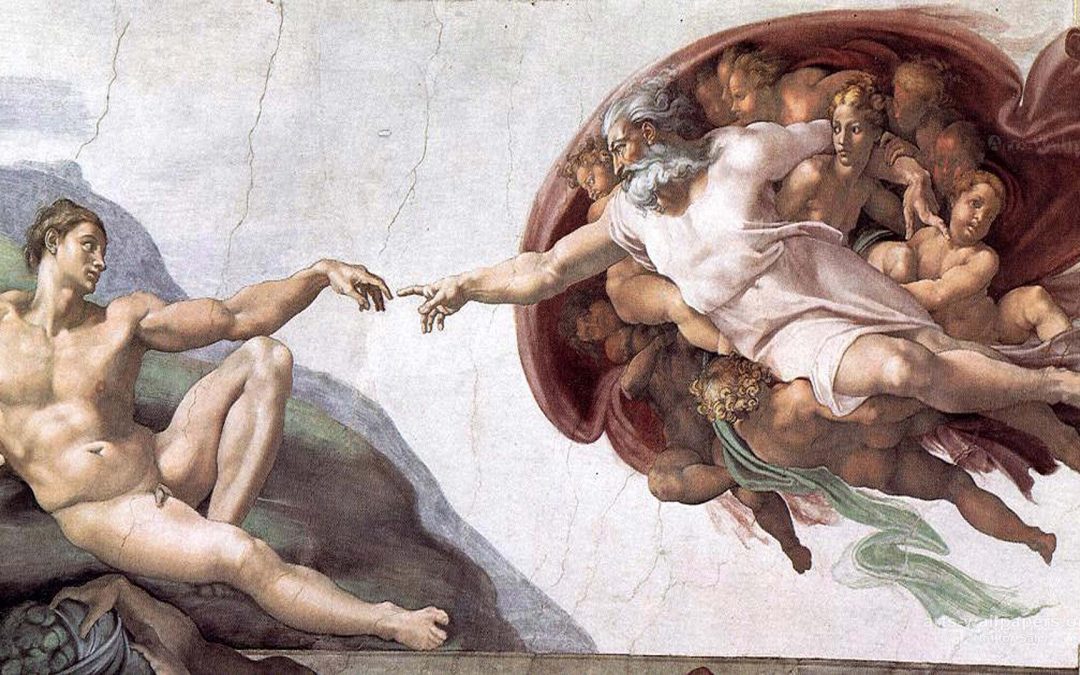
Sep 21, 2021
In the beginning God created the heaven and the earth.
And the earth was without form, and void; and darkness was upon the face of the deep. And the Spirit of God moved upon the face of the waters.
And God sighed deeply, wondering just what he had done to deserve this. Yet another mind-numbing project dumped on him by Management. Ever since the misunderstanding about that planet in the Orion system, when He had mistakenly introduced some radical new life-forms, God had been in the dog house over his liberal interpretations of the accepted guidelines of Creationism.
As He moved out across the face of the waters He reached into his billowing sleeve and pulled out a sheaf of papers, most of which sailed away into the gloom. `Damn,’ He thought, `I had better not lose the work order. Can’t afford to make that mistake twice.’
With the proper paperwork finally in hand, He scanned the Multiple Tasking Flow Chart but was unable to read the small print in the darkness. So God said Let there be Light, and by God, there was light. A brilliant light, a white-hot phosphorescence radiating from all around.
God grimaced and shielded his eyes. No, no, He thought, too bright for creative work.
With an impatient wave of His hand, He lessened the Great Luminosity and surrounded Himself with an ethereal, subdued light. And God saw that it was good.
And God divided the light from the darkness, because the work order listed this as an initial priority. And God called the light Day, and the darkness After-Day. Annoyed at this lack of imagination on the part of Head Office, He changed the name of darkness to Night, using white-out to change the wording on the forms. And evening came, the first day.
God arrived late the next day, having forgotten that He had already made mornings a reality. He emerged from what would soon be the firmament, breathless and sweating slightly, and a little concerned because He now had only so many hours of light in which to work.
God said, Let there be a firmament in the midst of the waters, and let it divide the waters from the waters.
At this point, He hesitated, unsure of the correct course of action given this confusing bit of metaphysical rhetoric. He thought about it for a while but could not picture in his mind what a firmament was supposed to look like. So He consulted the Book of Rules, which was the official Manual of Creative Endeavour. After much muttering and page-turning He found the answer and jumped up in exaltation. He made the firmament and divided the waters which were under the firmament from the waters which were above the firmament. And it was so.
It was also getting dark, so God called the firmament Heaven, and also called it a day. Evening came, the second day.
The next morning, God said, Let the waters under the Heaven be gathered together unto one place, and let the dry land appear. And it was so. Finally, He thought, a decent place to stand.
God called the dry land Earth and the gathering together of the waters he called Seas. And God saw that he was finally getting somewhere.
Then He noticed the waters above the firmament, hovering gently in place. What to do about those? Can’t just leave them there, hanging around ready to fall on people, if there were any. He consulted the work order but found no reference to those waters. Instead, He found that a page was missing. And God smiled broadly. Missing instructions were the best possible excuse for any screw-ups. God saw that this was good.
God said, Let the Earth bring forth grass, the herb yielding seed and the fruit tree yielding fruit, and all other manner of greenery. Warming to His task, He swept His arm out in a grand gesture thereby covering the earth with green life. And God had to move to higher ground.
Struggling through the abundant growth, His great sleeves now snagged on the dense branches, God found himself surrounded by the sudden darkness. Oh well, He thought, another day shot all to… somewhere.
Evening came, the third day.
And God said, Let there be lights in the firmament of the heaven to divide the day from the night; and let them be for signs, and for seasons, and for days, and years. And, thought God, with a sharp smile, for all lesser creatures of a gullible nature, let them also be for the signs of the zodiac.
And let there be lights in the firmament of the heaven to give light upon the earth; and to light His way home once that annoying darkness fell. For above all, God hated barking his shins on misplaced bits of celestial furniture.
God made two great lights, the greater light to rule the night and the lesser light to rule the day. And God saw that he was holding the work plan upside down. And God did swear mightily.
So God sent the two great lights into the nearest recycling bin and began yet again. This time, He placed the great light on one side of the firmament of heaven and the lesser light on the opposite side. He then spun them both in a circle, one following upon the other. He was able to jump out of the way just in time to watch the first sunrise go spinning by, followed two seconds later by the first moonrise.
God sighed deeply. The inevitable fine-tuning of the end-product, which He found so tedious, had just begun. Niggling adjustments to the nature of things which would no doubt go unnoticed and unappreciated by whichever intelligent life-form inhabited this latest project.
Returning from his daydreams, God dispensed proper activities to each part of the daily cycle. The day He made for sporting endeavours, for the practice of idleness and the making of money. And the night He made for the stirring of creeping beasts, for the widespread looting of shops and the violation of numerous commandments. And it was so.
And God saw that it was good. Or, at least acceptable.
Evening came, the fourth day.
And God said, Let the waters bring forth abundantly the moving creature that hath life, and fowl that may fly above the earth in the open firmament of heaven. At which point God decided it was time to do something about the waters above the firmament, which were still there, hovering gently in place. He could not repeat his usual practice, which was to bypass the issue by simply making all fowl into ducks. Too many complaints over that one.
So God said, Let the surplus waters of the firmament rain down upon the earth, providing life to the herb and the fruit tree and all manner of greenery. And Let it periodically flood out great portions of the most valuable real estate, as a reminder of God’s great powers. And it was so.
God blessed the creatures of the seas and skies with a great mumbling of obscure Latin, saying, Be fruitful and multiply, and fill the waters in the seas, and let fowl multiply in the earth. And, with a smile born of divine inspiration, He added, in a deeper tone of guttural Latin, Let all beasts evolve according to a process of natural selection.
And God saw that it was good He was going to get away with that last bit. He scampered out of there before anyone noticed what he had done.
Evening came, the fifth day.
And God said, Let the earth bring forth the living creature after his own kind, with cattle and creeping thing and beast of the earth. And it was so.
As God looked down upon all these beasts he sighed deeply. Such an ugly assortment of creatures. He tucked the work order into His great sleeve and prepared to improvise.
God struggled to render unto all animals a great beauty, as a testament to His renowned creative powers. He had much success with the birds and the butterflies, moulding them into flying rainbows of colour and grace. The cats became masters of elegance and refinement. The dolphins were endowed with the comic dignity of the gods themselves. And the fish became silvered jewels darting about the waters.
But then God came up against the moose and the wildebeest, and lost his resolve. Only time and the masterful selection of natural forces could ever make them beautiful.
And God said, Let us make man in our image, after our likeness: and let him have dominion over the fish of the sea, and over the fowl of the air, and over all the earth and over every creeping thing upon the earth.
As God raised his hand to make it thus, He hesitated, looked again at the papers and said `What the Hell is that supposed to mean? Man in our image? Dominion over everything? They have got to be kidding.’
He reread the work order, and shook his head slowly in disbelief. Then He remembered the missing pages of the work order and smiled broadly.
God thought that the part about `Dominion over all things’ was probably OK. It would be fun to see what mankind did with it since only the most primitive of life forms believed in this piece of brazen wordiness. But making man in our own image? That, he thought, cuts too close to the bone.
And then God had an idea. A wondrous idea, a moment of true epiphany. He scooped up a handful of dirt, spat upon it and moulded it into a ball of clay. From this clay He fashioned a long, thin shape; the perfect bone. Pleased with Himself, He made more bones, trying also different shapes and sizes. Then, He began fitting the bones together, making forms and figures, to which He applied coverings of various materials. And God saw that He was making a mess.
Each attempt was rejected as unsuitable for His ideals. So He simply named each new creature and set it free to roam in the greenery of the earth. God knew that the work plan had no provisions for these extra creatures but He also knew He had the ultimate excuse of ‘missing work order papers’.
So God smiled broadly as He made all manner of new creatures: the platypus, the echidna and the rhinoceros. The dugong, the kangaroo and the bats. And then God made a creature He found both handsome and amusing. This, He decided, was close to what He wanted, but not quite. So He told the creature, You shall be a monkey, and He set it free to play in the greenery of the earth.
This monkey became His template for all the creatures which followed, each one slightly different than the one before. Less hair, more upright, a larger brain, smaller eyebrows.
Just before the great light of Day gave over to the lesser light of Night, God stood and looked down upon a pitiful, naked creature and said, You shall be known as Man.
As He turned to go, God decided to try one last time. With the pile of bones depleted, He took a rib from Man and fashioned another creature, in the likeness of Man. To this creature He gave a softer look, with more curves, less body hair and longer eyelashes. And God saw that it was good.
As a compliment to this, his best achievement, God also gave this creature the ultimate gift: the ability to bring forth Great Life. To this creature He said, You shall be known as Woman. He then pointed to Man and said, He shall be your servant, to protect you and your offspring, and make your life well and good.
As God made the appropriate revisions to the work order, Man did notice that some of the pages were missing. And Man saw that it was good.
Evening came and the arguing began. The sixth day.
Thus the heavens and the earth were finished. And on the seventh day God rested from all His work which He had made.
And God blessed the seventh day, and sanctified it, because it was the least He could do, considering the mess He had made of things. He did not envy those who were to live in this place.
As He moved out across the face of the waters He sighed deeply. Already the signs of impending problems were many and widespread. He reached into His billowing sleeve, pulled out the work order and made a note that someone should return one day to check on things.
As God entered the void beyond the earth He looked back one last time. Despite His advice, it was unlikely that Management would approve the work order for a second coming.
This world was on its own.

